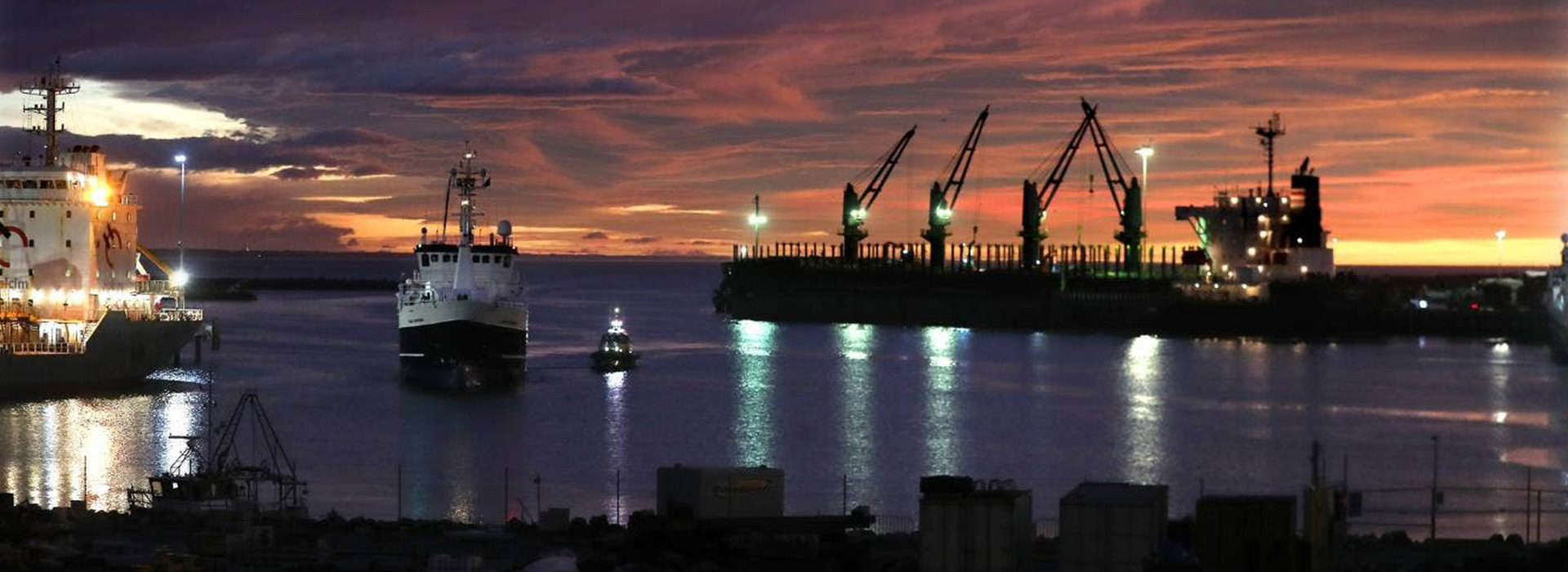The port operations of Timaru District Council’s business arm are more important than the dividend it provides to owners, according to its general manager.
Frazer Munro is the first GM of Timaru District Holdings Ltd (TDHL) – the wholly-owned subsidiary of the district council (TDC) – and says its money-making operations are predominately based around the success of the port.
TDHL holds a 50 per cent share in PrimePort Timaru and owns more than 20 port properties along with accompanying land leases. There is also a 47.5 per cent share of lines company Alpine Energy which combine for assets valued at $169.26 million tabled in a recent six-monthly report to the TDC.
The holding company returned a $2m dividend to the TDC in 2020-2021 and is on track for a $1m dividend this financial year, all in the face of the Covid-19 pandemic and the Commerce Commission decision which ordered Alpine Energy to reduce its revenue haul by 19 per cent in 2019.
Munro said the dividend drop was primarily the result of the ComCom decision and while other Alpine Energy shareholders had had a more significant dividend drop with changes, TDHL was able to buffer the drop through its diversification.
“Land leases are the predominant property holding of TDHL,” Munro said, confirming a statement to the TDC by TDHL’s board chairman Mark Rogers that there is a “high-level of activity at the port and demand for businesses to be close to the wharf continues”.
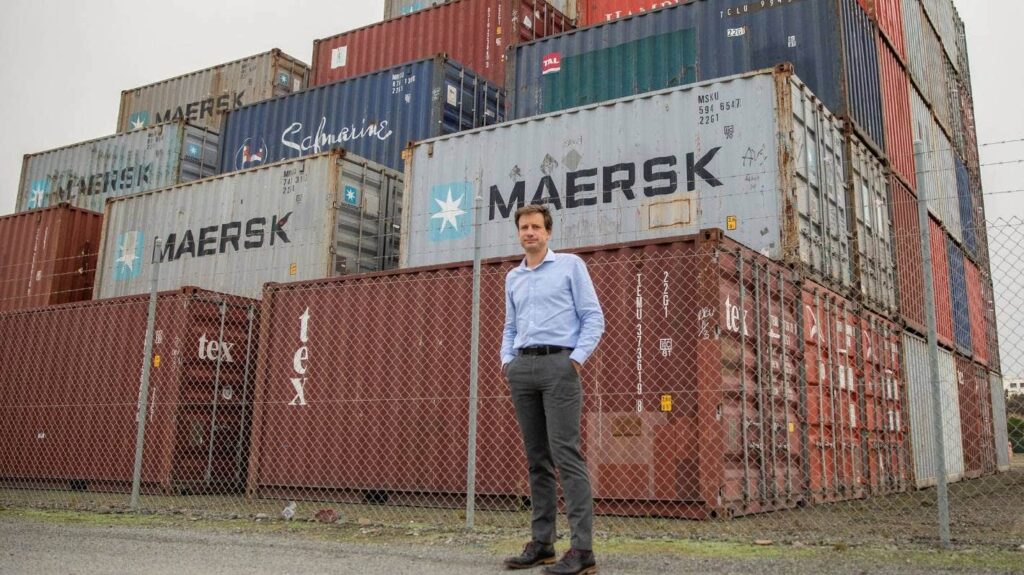
“There is interest in (port) land,” Munro told The Timaru Herald.
“There is not much land around on ports at all (around New Zealand), so it is a bit of rare thing here. It’s been good, we’ve got a few opportunities.
“Timaru is in an excellent position.
“There are always national or international tenants looking for opportunities to establish sites close to ports.”
Munro said that interest goes back to “that wider primary producing hinterland” through fuel tenants, oils, edible oils and chemicals businesses using the port – the primary producing inputs, “the sort of things that can’t sort of go off the ship and straight into Washdyke, that Timaru (port) had in its favour”.
“They’ve got to plug in and pipe into a tank and that’s hard to get.
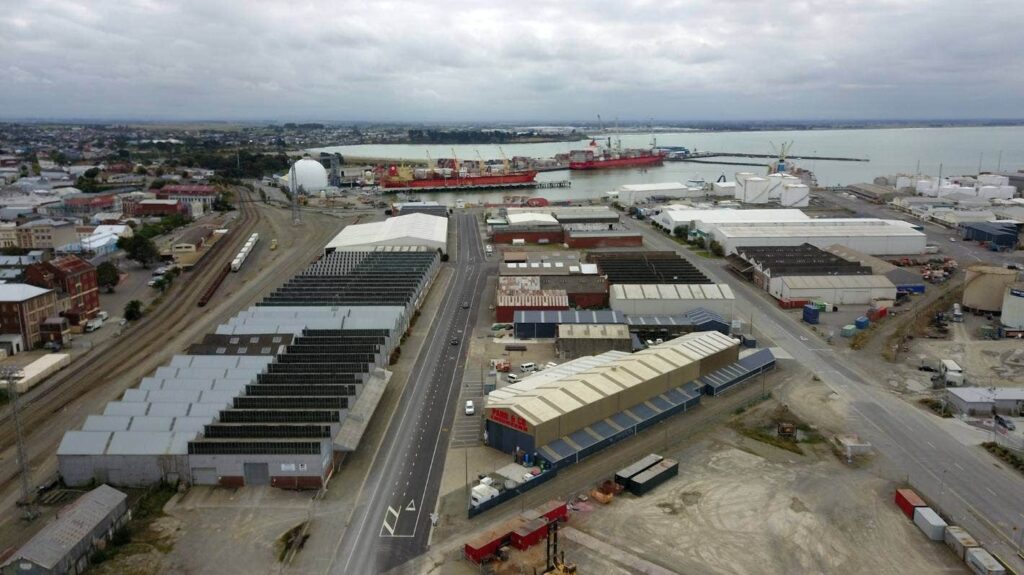
“A lot of ports don’t have a lot of land close by. That’s why we’ve got Timaru Oil Services (TOS) here. They’ve got a pipeline (over about 800 metres) that runs all the way up to the port, and they scoured the country for a site like this.”
Munro said the TOS tank farm site used to be old warehouses on land owned by TDHL.
“They are a new operator to the local and national fuel market, a Pacific-based company, and we own the land, and we’ve leased it to them. It is maybe a $40m development.
“Prices at the pump fell almost overnight when that opened.
“That is probably a good example of what we’re trying and do with the TDHL portfolio in that we focus it on tenants that add value to the port and add value to the community, so because we are a primary producing region that means a synergy with the port and the community is pretty close.
“A site this size, this close to the port, in such a central South Island location, is pretty rare. It definitely encourages demand.
“Z Energy have two sites here. That’s bigger than Timaru Oil Services. They are great fantastic leases, fantastic assets that keep on turning over every day and increasing the ship calls.
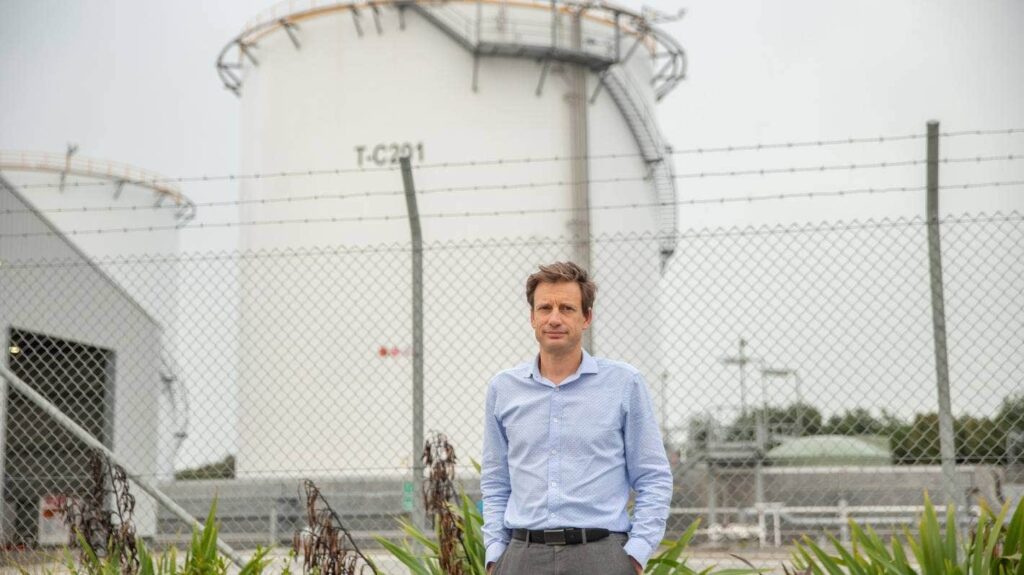
Munro said many businesses are in Timaru’s port area because they have a pipeline to the port, so the “ship can park up and pipe in, unload, job done”.
“That feeds into places like Clandeboye (Fonterra’s dairy factory) and all those other primary producers.
“And that is why, even with Covid, this place just keeps ticking on over because those factories need what the port can supply.”
Munro said development sites are being worked on with new options and there are a number of hectares available.
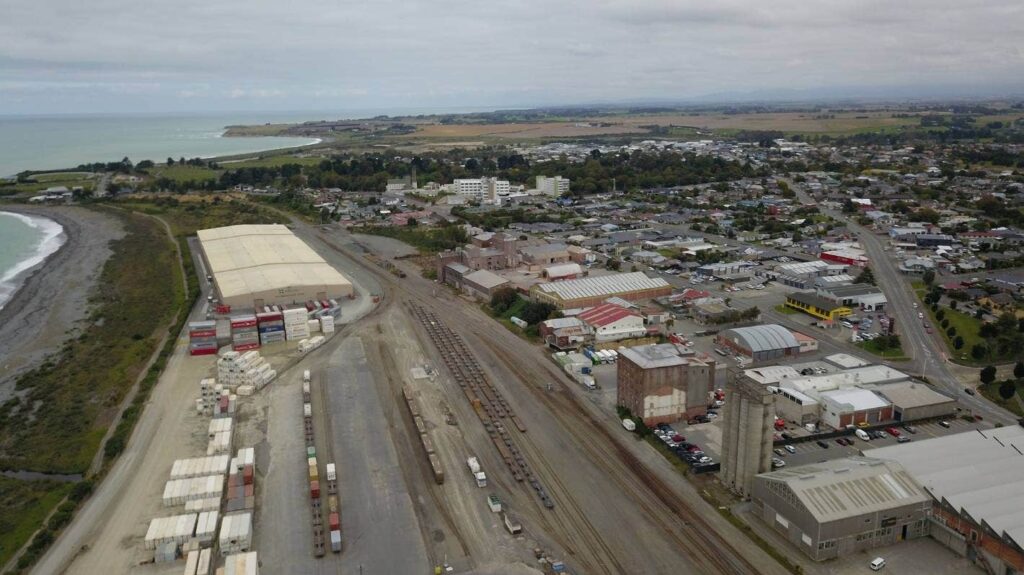
“The role of TDHL is to ensure the port is sustainable in the long term and provides that service to the community so when we talk about delivering prosperity to the community it is the investments that do that.
“It is sort of an arms length delivery of prosperity to the community.
“We don’t do it directly ourselves but our investments through PrimePort and Alpine and the port properties and then the dividend to TDC that enables the TDC to do what it chooses to do what it wants with that dividend.

“It (TDHL) also ensures that the community has sustainable businesses like the port to support that broad diverse enconomy.”
Munro said that diversity is apparent when looking at what makes up its portfolio of tenants, from the big clients like the fuel companies to medium-sized operators to smaller businesses.
“All through the port we have a range of tenants. We’ve got builders, Customs NZ, MPI, some of the port guys that do some of the operational stuff, Seafarers, stevedoring and fishing companies.
“Without these guys, the port wouldn’t work. You need these businesses.”
Munro said those type of tenants, which now occupy the former port offices, are a good example of some really important businesses.
“Not the Z Energy type, but several different types that without them the port just wouldn’t be as efficient and that healthy resilient eco-system.
“We make sure the tenants preferably have a direct port focus so really support the operations of the port.
“The value the port adds to the community and the region is far, far greater than the dividend it creates because of those businesses…”

